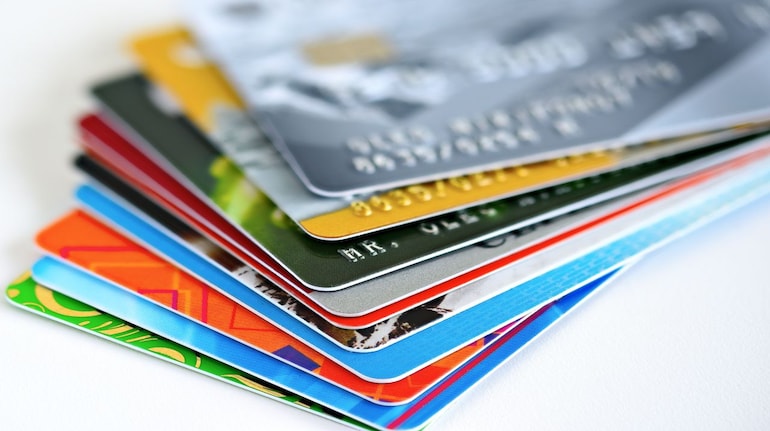



A credit card can be a useful spending tool if it is utilised in the right manner. If you pick the right card by taking into account what you spend on the most, it will help you earn rewards even as you spend.
However, if not used with discipline, even the most beneficial card could lead to a heavy debt burden. Hence, it is important to understand the basics of responsible card usage.
Here are a few things to keep in mind when you get a credit card:
Make use of introductory offers and sign-up bonus
Most credit cards offer welcome benefits in the form of bonus reward points, complimentary memberships, discounts or cashbacks with select brands, free flight tickets, etc. For example, the Flipkart Axis Bank Credit Card offers a 50 percent instant discount on the first Swiggy order through the card along with a Rs 500 Flipkart voucher. The HDFC Regalia Gold Credit Card provides gift vouchers equivalent to the joining fee along with complimentary membership to Club Vistara (Silver) and MMT Black Elite.
Welcome benefits usually have some terms and conditions attached. You might have to spend a certain amount within the first 30 days or in the first three months to be eligible for the benefit. For example, to avail of the complimentary memberships on HDFC Regalia Gold, you would have to spend Rs 1 lakh within 90 days of card issuance.
Though it is not recommended to spend beyond your means just to avail the welcome benefit, you can strategically plan your expenses in order to make the most of it. You can put big-ticket purchases on the card or route multiple priority expenses through the card to meet the spend threshold.
An important point to note here is that certain spends may be excluded from the spend threshold calculation. Usually, transactions converted into EMIs or returned purchases are also not taken into account.
Understand the rewards programme and bonus categories
Credit cards offer value-back in the form of reward points or cashback on most spends, along with accelerated value-back on select categories or brands. When you get a new credit card, you should understand the categories on which you can earn maximum value and use your card accordingly. Some cards may also provide additional benefits with select brands. For instance, if your card offers extra rewards on online spends, you should route all your online spends through the card.
Credit card rewards programmes also come with some exclusions and terms and conditions. For example, you might not earn any rewards on fuel, jewellery, utilities etc. or you may have to reach a certain spend milestone to be eligible for accelerated earning. Keeping these factors in mind will help you squeeze maximum value out of the card.
Spend only as much as you can repay on time
Paying only the minimum amount due is one of the most serious mistakes that new cardholders make. When you do not clear the dues in full, not only does the remaining balance start attracting finance charges but new transactions also become ineligible for the interest-free period. Since credit card finance charges are quite high, even a small balance could quickly create a debt spiral.
In case you fail to pay even the minimum due, late payment charges will also be applicable in addition to the finance charges. This will also have a direct impact on your credit score. Overspending and revolving the balance to the next cycle could also make you breach your credit limit often, portraying you as a credit-hungry borrower and damaging your credit score.
Avoid cash withdrawal
Cash withdrawals do not qualify for the interest-free period on most credit cards. This means that if you withdraw cash from an ATM using your credit card, finance charges will be applicable from the first day.
Every time you withdraw cash, a one-time cash withdrawal fee will also be applicable, which may range between 2 percent and 5 percent of the withdrawn amount. Moreover, when you use this facility, new transactions will become ineligible for the interest-free period, again spiralling the debt.
Study additional perks and utilise them
In addition to rewards or cashback, credit cards may offer several additional perks across different categories. For instance, a travel credit card may offer additional benefits with a particular hotel chain but for this, you would first need to register with the hotel’s membership programme. Generally, complimentary memberships are accompanied by significant savings such as discounts on hotel stays, free breakfast, etc.
Similarly, airline co-branded credit cards provide complimentary membership to the carrier’s frequent flyer programme, which entitles you to several additional privileges. Procrastinating on a one-time registration could make you lose significant savings.
Whenever you get a new card, you are given a 30-day window, followed by a 7-day grace period, to activate the card. As per RBI guidelines, banks cannot create a new credit card account unless the user activates it. Hence, it is crucial to activate your credit card within this timeframe to continue using it and avail of the benefits.
Moreover, by default, all new debit cards and credit cards are disabled for online, international and contactless transactions. Users will have to enable the same through the bank’s online banking portal. Hence, digital set-up of the card is also an important step to take after you receive a new card.
Start using the card keeping these five factors in mind to get the maximum value out of it. Make good use of the rewards programme, spend within your means and pay your bills on time. With smart and disciplined usage, you can save a substantial amount with credit cards.
Discover the latest Business News, Sensex, and Nifty updates. Obtain Personal Finance insights, tax queries, and expert opinions on Moneycontrol or download the Moneycontrol App to stay updated!
Find the best of Al News in one place, specially curated for you every weekend.
Stay on top of the latest tech trends and biggest startup news.